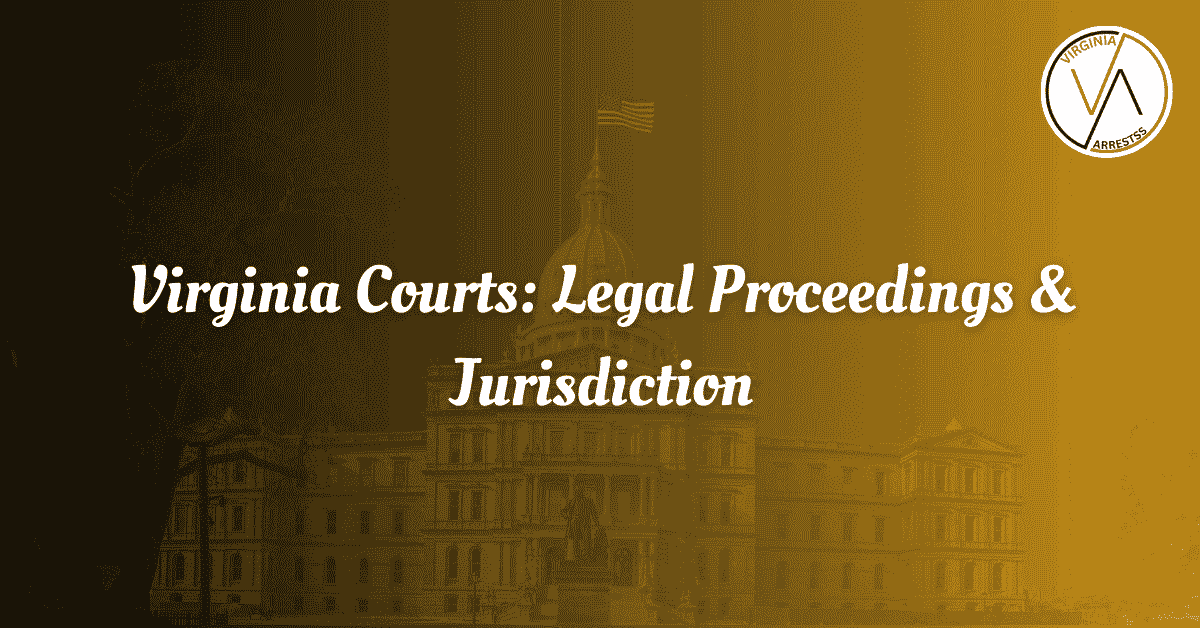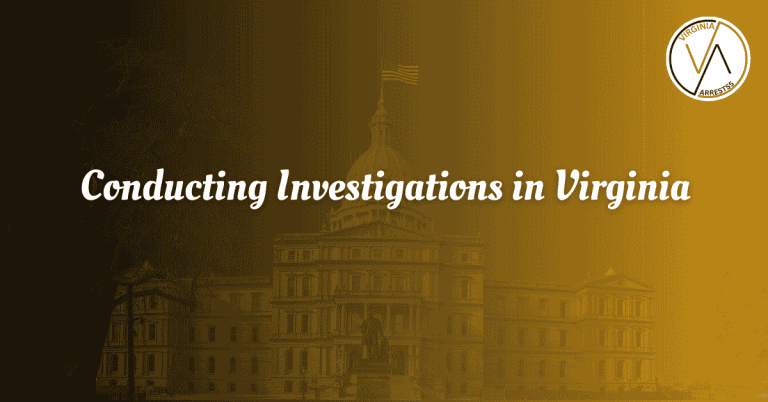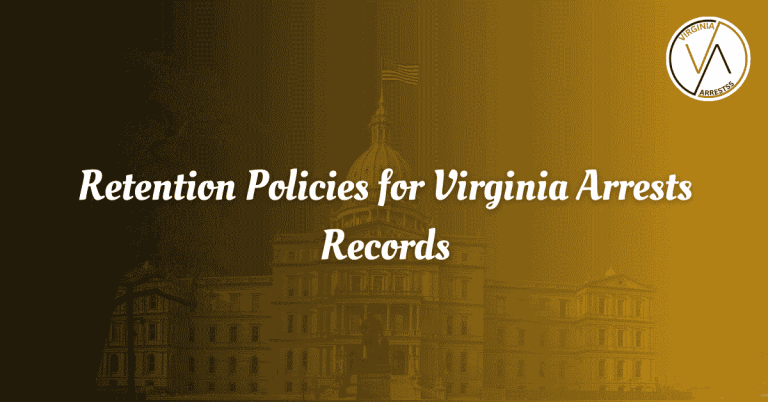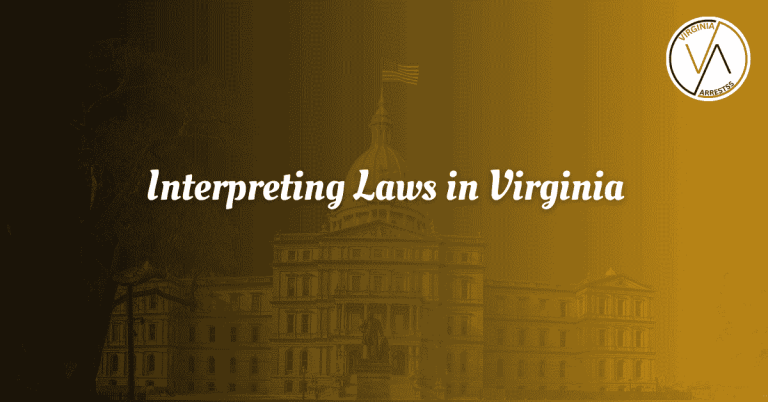Virginia Courts: Legal Proceedings & Jurisdiction
Virginia Courts play a crucial role in overseeing legal proceedings and jurisdiction within the state. From civil cases to criminal trials, these courts ensure that justice is served and the law is upheld. With a focus on fairness and adherence to legal procedures, Virginia Courts provide a platform for resolving disputes and upholding the rule of law.
Legal proceedings in Virginia Courts encompass a wide range of cases, including family law matters, property disputes, and criminal offenses. Judges and legal professionals work diligently to interpret the law and administer justice in a thorough and impartial manner. With a strong emphasis on upholding the rights of all parties involved, Virginia Courts strive to maintain the integrity of the legal system.
Foundational Principles of Virginia Court System
The Virginia Court System is an essential component of the state’s judicial branch, responsible for interpreting and applying the laws of Virginia. It consists of several levels of courts that handle a wide range of legal matters, ensuring justice is served effectively and efficiently.
Legal Processes and Scope of Jurisdiction
The legal processes in Virginia Courts follow a structured framework to ensure fair and impartial resolution of disputes. The scope of jurisdiction determines the authority of each court to hear and decide cases based on the subject matter, geographical location, and other relevant factors.
Virginia Courts’ Role in Upholding Justice
Virginia Courts play a crucial role in upholding justice by interpreting and enforcing the laws of the state. They serve as impartial arbiters in legal disputes, ensuring that the rights of all parties involved are protected and that justice is served in accordance with the law.
Wide Array of Legal Matters in Virginia
Virginia Courts handle a wide array of legal matters, including civil, criminal, family, probate, and administrative cases. Each type of case requires specialized knowledge and expertise, with judges and court personnel dedicated to ensuring a fair and efficient resolution.
Levels of Jurisdiction in Virginia Courts
Virginia Courts operate at different levels of jurisdiction, including the Supreme Court of Virginia, the Court of Appeals, Circuit Courts, General District Courts, and Juvenile and Domestic Relations District Courts. Each level of court has specific roles and responsibilities in the judicial system.
Nuanced Understanding of Court Procedures
Having a nuanced understanding of court procedures is essential for navigating the legal system effectively. From filing court documents to presenting evidence in court, knowing the ins and outs of court procedures can greatly impact the outcome of a case.
Jurisdictional Boundaries in Virginia
Jurisdictional boundaries in Virginia Courts define the authority of each court to hear and decide cases. Understanding these boundaries is crucial for determining which court has the jurisdiction to handle a particular legal matter, ensuring that cases are heard in the appropriate venue.
Rights and Responsibilities of Parties Involved
Parties involved in legal proceedings in Virginia Courts have certain rights and responsibilities that must be upheld throughout the process. These rights include the right to a fair trial, the right to legal representation, and the right to appeal a court decision, among others.
Frequently Asked Questions
Find answers to commonly asked questions about Virginia Courts: Legal Proceedings & Jurisdiction below.
What types of cases do Virginia Courts handle?
Virginia Courts handle a wide range of cases, including civil, criminal, family, traffic, and juvenile matters. Each type of case is heard in a specific court depending on the nature of the legal issue.
How does jurisdiction work in Virginia Courts?
Jurisdiction in Virginia Courts refers to the court’s authority to hear and decide a case. The court must have both subject matter jurisdiction and personal jurisdiction over the parties involved to proceed with a case. Subject matter jurisdiction relates to the type of case being heard, while personal jurisdiction involves the court’s authority over the individuals or entities involved.
How are Circuit Courts different from General District Courts in Virginia?
Circuit Courts in Virginia have general jurisdiction and handle more serious criminal cases, civil cases involving higher monetary amounts, and family law matters. General District Courts, on the other hand, have limited jurisdiction and handle smaller civil cases, traffic offenses, and preliminary hearings for criminal cases.
How can I file a lawsuit in Virginia Courts?
To file a lawsuit in Virginia Courts, you must first determine which court has jurisdiction over your case. You will need to prepare the necessary legal documents, pay the filing fees, and serve the other party with a copy of the lawsuit. It is advisable to seek legal advice from an attorney to ensure the proper procedures are followed.
What is the process for appealing a decision in Virginia Courts?
If you disagree with a court’s decision in Virginia, you may have the option to appeal the ruling. The appellate process involves submitting a notice of appeal, preparing a written brief outlining your arguments, and presenting your case before a higher court. It is crucial to adhere to strict deadlines and procedural rules when appealing a decision.
Can I represent myself in Virginia Courts without an attorney?
While individuals have the right to represent themselves in Virginia Courts, it is highly recommended to seek legal representation. Navigating the legal system can be complex, and an experienced attorney can provide valuable guidance, advocacy, and expertise to ensure your rights are protected and your case is presented effectively.








One unique solution to enhance the efficiency and accessibility of Virginia Courts could be the implementation of a comprehensive online dispute resolution (ODR) platform. This platform would allow individuals to resolve certain types of legal disputes—such as small claims, landlord-tenant issues, or family law matters—through a user-friendly digital interface.
By integrating features like video mediation, document sharing, and guided workflows, the ODR platform could reduce the burden on court resources while providing a more accessible option for those who might find